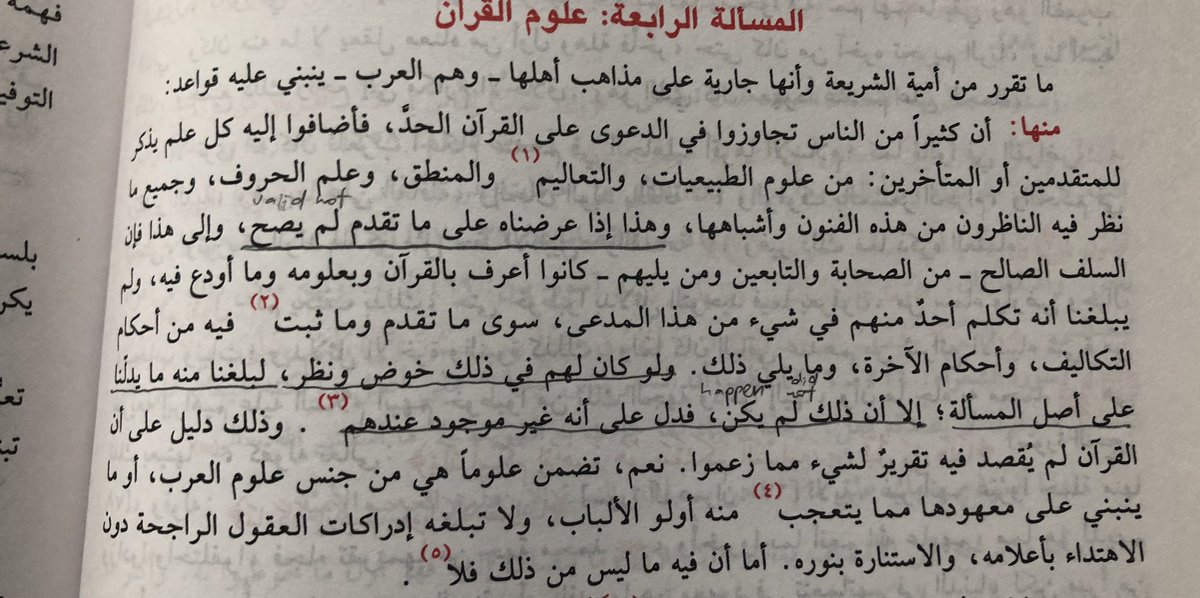I’m by no means knowledgable about the Islamic sciences, but being able to know enough to make comparisons/draw parallels with Western thought makes my classes endlessly interesting.
Here are some examples, inshāAllāh.
Here are some examples, inshāAllāh.
Jean-Paul Sartre, the French existentialist relayed a story in his lecture Existentialism is a Humanism:
A student of his came to him asking whether he should join the French Army in the war to avenge the death of his brother or should he stay at home and take...
A student of his came to him asking whether he should join the French Army in the war to avenge the death of his brother or should he stay at home and take...
care of his mother.
Sartre, being an existentialist, said that no moral system whether religious (he mentioned Catholicism specifically) or philosophical (Kantian ethics is mentioned) could tell him what to do because they are too abstract.
Sartre, being an existentialist, said that no moral system whether religious (he mentioned Catholicism specifically) or philosophical (Kantian ethics is mentioned) could tell him what to do because they are too abstract.
Sartre argued that he had to make the choice on his own, and take full responsibility for it—not blaming his choice on any other individual or thought system. That is the way to manifest your full humanity according to Sartrean existentialism.
What I find interesting is that this exact dilemma is found in a hadīth narrated in Sahīh Muslim, and that Islam does in fact provide a guideline for us in making choices:
In Galileo’s Letter to the Grand Duchess Christina of Tuscany, he discusses how the Bible should be interpreted in light of science/observations because he was ultimately trying to reconcile Copernicus’ theory (heliocentrism) with Scripture.
Galileo argued that the Bible is not the authority on science (and it was never its function to be that), but science instead should be used to interpret the Bible in verses concerning the natural world.
What immediately came to my mind was Imām al-Shātibī’s book al-Muwāfaqāt fī Usūl al-Sharī’a in which the Imām also discussed this exact problem:
The Imām argued that the approach in attributing all kinds of sciences to the Qur’an is “...not valid” and that “...the Companions and the Tābi’īn did not make such claims,...if it were true, reports would have reached us regarding it...”
For more information about the Qur’an and Science, read Hamza Tzortzis’ paper: https://www.hamzatzortzis.com/does-the-quran-contain-scientific-miracles-a-new-approach/
and watch Asadullah Ali’s lecture: “The Qur’an and Science: A Forced Marriage”.
and watch Asadullah Ali’s lecture: “The Qur’an and Science: A Forced Marriage”.
Blaise Pascal, the French philosopher/mathematician wrote in his manuscript Pensées about the limitations of ‘reason’ in believing God compared to faith.
Pascal argued that it is only through faith that is convinced in the heart, not in the intellect, that is worthy.
Pascal argued that it is only through faith that is convinced in the heart, not in the intellect, that is worthy.
What comes to mind is the definition of īmān according to scholars of Islam:
“īmān (faith) is belief by the heart and affirming it (tasdīq), uttered by the tongue and acted by the body”
“īmān (faith) is belief by the heart and affirming it (tasdīq), uttered by the tongue and acted by the body”
I find it an interesting similarity that Pascal has with Islam—that faith necessarily has to be present in the heart, and not just defined by outward actions.
Wallāhu a’lam.
Correct me if I’m wrong.
Wallāhu a’lam.
Correct me if I’m wrong.

 Read on Twitter
Read on Twitter





